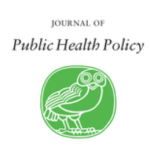The Washington Post and an investigative journalism outlet called The Examination have partnered to investigate nutrition influencers on social media. Their investigation is ongoing, so we can expect more from them. While I think this work is important, I believe some red flags in this investigation are worthy of discussion.
conflict of interest
The ALA does not approve of e-cigarettes, despite the fact that thousands of smokers have used them to quit. Is their reluctance to acknowledge the utility of e-cigarettes due to a financial conflict?
A small study of the Thanksgiving cranberry raises the issue of when science in the public interest transitions from informing to advocacy and then to marketing.
Some scientific journals are publishing articles by anti-technology activists without disclosing their blatant financial conflicts of interest. Despite all the pleas for transparency, the problem is getting worse.
Scientific journals discriminate against industry scientists, unless, that is, they happen to work for the environmental or organic industries. Those scientists don't have to follow the same rules governing the disclosure of conflicts of interest that everybody else does.
Like an Obama birther, the Times' Eric Lipton will continue spouting conspiracy theories about the biotech and chemical industries despite the evidence. This will ensure that his boss's wife, who serves on the board of Whole Foods, remains wealthy.





